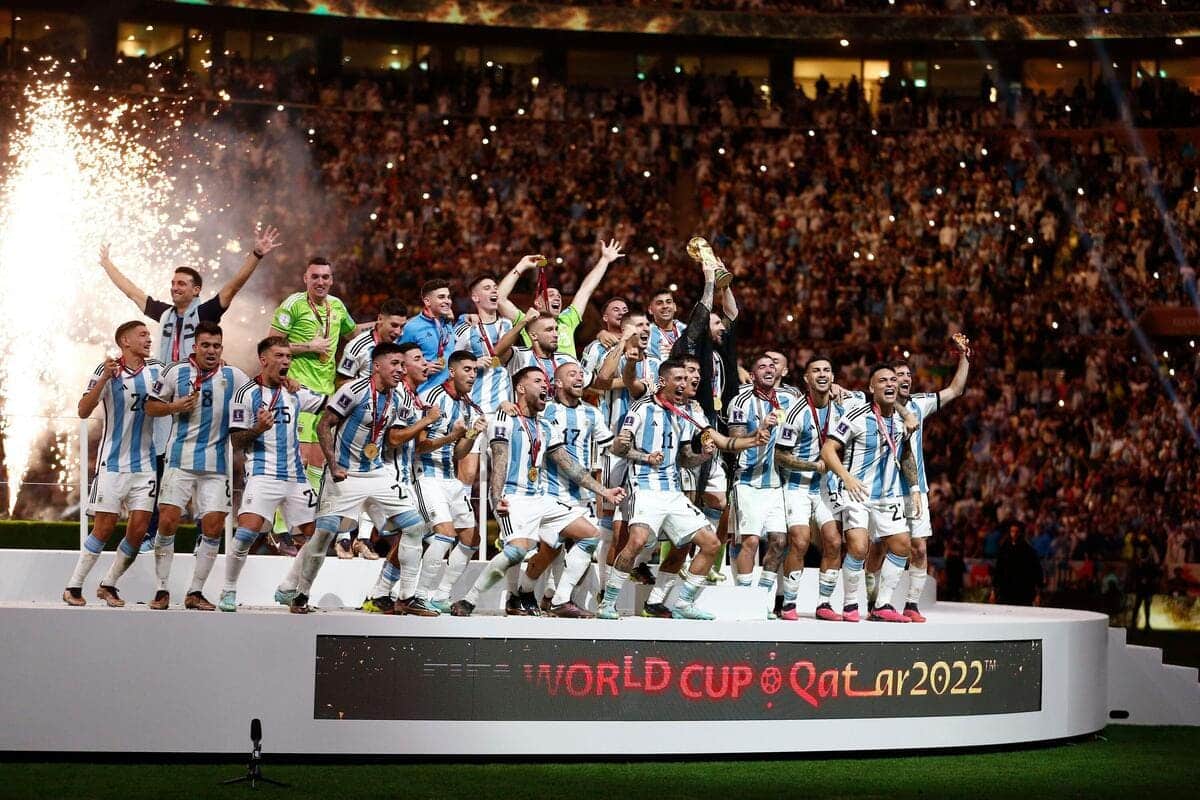#uefa-qualifiers
#uefa-qualifiers
[ follow ]
#2026-world-cup-qualification #world-cup-2026 #england-national-team #nations-league #scotland-national-team
fromESPN
1 week agoPoland 1-1 Netherlands (Nov 14, 2025) Game Analysis - ESPN
The Netherlands came from behind to draw 1-1 with Poland in Warsaw and take a major step toward direct qualification for the 2026 World Cup. With one match left to play, the Dutch top Group G, three points clear of the Poles after Memphis Depay's second-half equaliser canceled Jakub Kaminski's opener. - Who would win the 2026 World Cup if it kicked off today? A win in Warsaw would have secured qualification for Ronald Koeman's side but they are all but secure of clinching their spot going into their final match against bottom-of-the-group Lithuania on Monday.
Soccer (FIFA)
fromwww.theguardian.com
1 month agoWorld Cup qualifying roundup: Sweden on brink of elimination after Kosovo defeat
Sweden's faint hopes of qualifying for the World Cup were all-but extinguished as the 2018 quarter-finalists lost 1-0 against Kosovo in Stockholm. Fisnik Asllani fired a first-half effort that allowed the Kosovans to complete a remarkable double over their opponents and boost their own hopes of booking at least a playoff place. Sweden who featured 125m man Alexander Isak up front alongside Viktor Gyokeres remain rooted to the bottom of Group B on one point.
Soccer (FIFA)
fromwww.theguardian.com
2 months agoNigeria, Italy ... England? Big names may struggle to reach the World Cup
It's been telling how much of the coverage around England recently has focused on how they must improve before the World Cup finals next summer. It's true, of course: they've been in the final of the last two Euros, played well in getting to the quarter-final of the last World Cup and have a fleet of extremely gifted players but have not really impressed since beating Greece in the Nations League under Lee Carsley last November.
Soccer (FIFA)
fromwww.bbc.com
2 months agoWhy have Scotland not qualified for a World Cup since 1998?
Twenty-seven years have dragged by since without Scotland's men reaching a World Cup, a horrendous run that has bludgeoned the high standing of the nation's football team while casting them into the international wilderness for well over a generation. But how bad is it that it has been so pain-painstakingly long? Who is to blame, and can the Tartan Army dare to have a dream again?
Soccer (FIFA)
fromwww.theguardian.com
2 months agoSolskjr, Mourinho and a warning for Amorim after Manchester United | Football Daily
The modern football manager might wear classic Reeboks, or knackered Converse, or trackie bottoms tucked in socks but, to continue paraphrasing the Arctic Monkeys song, there ain't no romance in our game no more. Nothing endures. The average managerial tenure tends to last between 18 months and two years. For Ole Gunnar Solskjr at Besiktas, it was a little more than seven months; Jose Mourinho got 14 at Fenerbahce.
Manchester United
[ Load more ]

